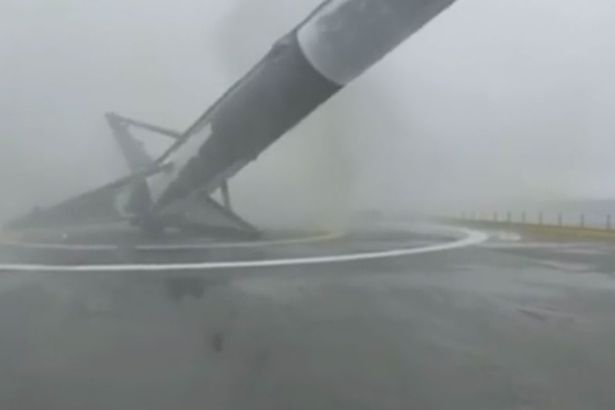-
Tips for becoming a good boxer - November 6, 2020
-
7 expert tips for making your hens night a memorable one - November 6, 2020
-
5 reasons to host your Christmas party on a cruise boat - November 6, 2020
-
What to do when you’re charged with a crime - November 6, 2020
-
Should you get one or multiple dogs? Here’s all you need to know - November 3, 2020
-
A Guide: How to Build Your Very Own Magic Mirror - February 14, 2019
-
Our Top Inspirational Baseball Stars - November 24, 2018
-
Five Tech Tools That Will Help You Turn Your Blog into a Business - November 24, 2018
-
How to Indulge on Vacation without Expanding Your Waist - November 9, 2018
-
5 Strategies for Businesses to Appeal to Today’s Increasingly Mobile-Crazed Customers - November 9, 2018
SpaceX Launches Satellite but Fails to Land Reusable Rocket
A SpaceX Falcon 9 rocket with the Jason-3 spacecraft onboard is shown at Vandenberg Air Force Base S …
Advertisement
The precise landing of the Falcon 9 last month at Cape Canaveral, Florida, has many eager to see whether Musk and his team can pull off their second rocket landing.
The private space company had launched a NASA satellite into space from California on Sunday but when Space X attempted to land the rocket on a purpose-built barge in the Pacific Ocean, disaster struck.
Despite the failure of the landing gear, Sunday’s launch was largely considered a success because it achieved its primary goal to put the United States and European-owned Jason-3 satellite into orbit 1,336km above the planet. The satellite that was launched into space, named Jason-3, will measure ocean levels on the Earth’s surface.
Even though an ocean landing is more hard, SpaceX wants to flawless the technique because ship landings “are needed for high velocity missions”, Musk tweeted.
“After further data review, stage landed softly but leg 3 didn’t lockout”.
Like its predecessors, Jason-3 is equipped with a radar altimeter to bounce microwave energy off the ocean and a GPS system to identify the satellite’s precise location.
This was SpaceX’s third attempt at landing the Falcon rocket on a mobile barge.
Kevin Meissner, who used to work for SpaceX, told Xinhua, “the sea landing doesn’t require much fuel because you don’t need to turn around and fly all the way back to the land”. However, the launch was postponed after a different Falcon 9 rocket failed during a supply mission to the International Space Station in June.
Although Koenigsmann said there was “nothing out of order” with the returned booster, Musk indicated there were no plans to relaunch the Falcon 9 after its December landing.
Space X’s troubled rocket program has suffered another setback after a rocket exploded spectacularly upon landing after successfully sending a satellite into orbit. Only one out of four attempts in the past year have been successful. The five-year mission of the satellite will be to study more precisely the global warming and sea level rises are affecting wind speeds and currents, up to as close to the shore as about a half-mile.
Advertisement
“Definitely harder to land on a ship”, tweeted Musk after the latest foible.




























